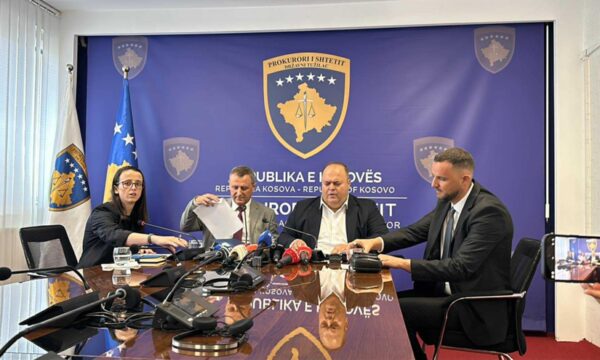Kosovo indicts 21 in absentia for war crimes against civilians

Kosovo’s Special Prosecution has filed an indictment in absentia against 21 individuals at the Basic Court in Pristina for the offense “War crimes against the civilian population.” The prosecutor said the charges follow years of intensive investigations.
Why is this important: According to the prosecution, the evidence indicates the defendants exercised authority over Yugoslav armed forces and Serbian police in parts of Kosovo and are implicated in the forced expulsion of more than 800,000 Albanian civilians and the mistreatment of the Albanian civilian population during the war.
Context: The Special Prosecution says the defendants, by virtue of their positions and functions, failed to take necessary and reasonable measures to prevent these crimes, failed to punish the perpetrators, and failed to report them to higher authorities. Because the suspects are currently unreachable, prosecutors have requested international arrest warrants.
Officials note that in recent years the number of indictments in Kosovo for “War crimes against the civilian population” has risen significantly, reflecting expanded case-building and access to documentary and testimonial evidence. The filing to the Basic Court in Pristina opens a new phase in the proceedings; hearings will be scheduled pursuant to Kosovo’s criminal procedure once service of process and related steps are completed, including any international cooperation required to locate the accused.
What else: The prosecution has not publicly disclosed the names of all defendants at this stage. It said the case file includes witness statements, contemporaneous records, and materials linking command responsibility to alleged acts of expulsion and ill-treatment. The indictment also sets out the alleged geographic areas where Yugoslav/Serbian forces operated under the purported authority of the accused.
What’s next: If the court confirms the indictment, judges may proceed with measures to try the case in absentia where permitted or suspend proceedings pending the apprehension of the accused. The Special Prosecution says it will continue to pursue international legal assistance to execute warrants and secure additional evidence.


